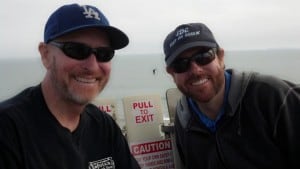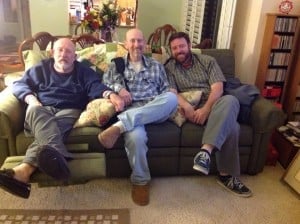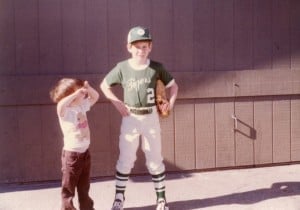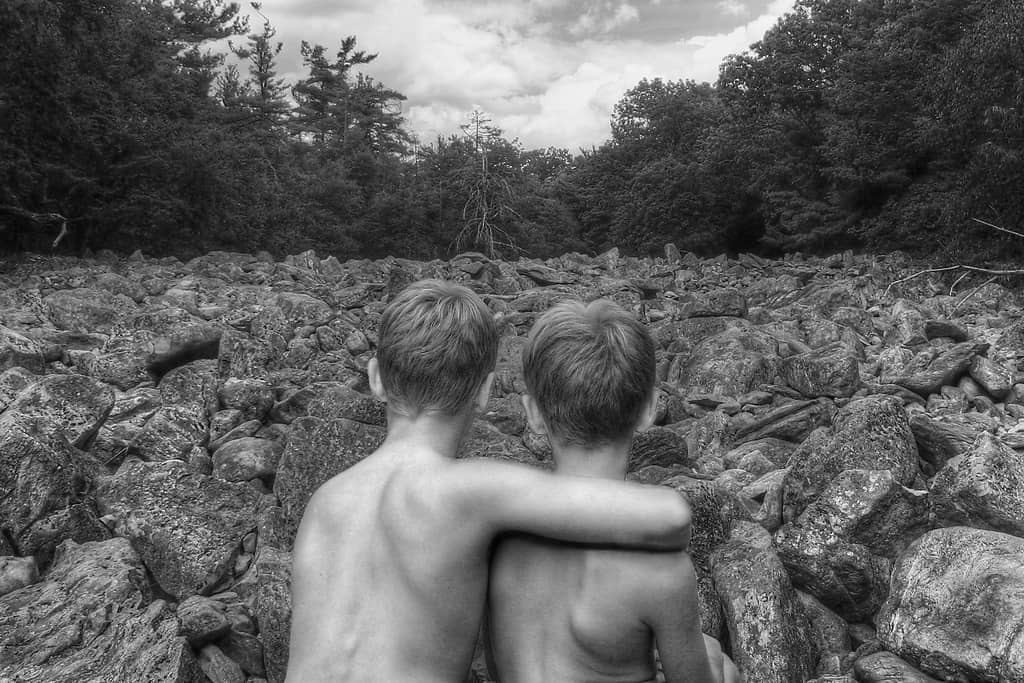Maybe by now you’ve heard the story of the California woman who shortly after her 29th birthday learned that she had brain cancer. About two months after her initial diagnosis, she learned that it was a very aggressive, incurable cancer and she was given six months to live. She and her new husband moved from their San Francisco home to Oregon, because Oregon allows terminally ill patients to end their own lives with the use of a physician-prescribed drug.
She is young. She loves her husband, he loves her. She has a pretty good idea of how the next months will play out. She wants her final months, and especially her death, to be dignified.
I understand all that. But I would like to tell you a brief story about another life. One that was also challenged by cancer, that was given a limited time, and that was also full of love and dignity.
Just over three years ago, my brother Tony was diagnosed with cholangiocarcinoma – a very rare cancer of the bile duct. He only knew at first that he was stricken with a vicious case of jaundice, but a quick-thinking physician sent him immediately for a CT scan. What they found was a massive lesion – 14cm – on his liver, and subsequent scans showed that it had already metastasized to the lymph nodes. There would be no cure, and his blood was so poisoned by jaundice that they couldn’t even start treating the cancer directly. That was in June, he was 45, and we would be lucky if he was still with us at Christmas. Tony, then, knew despair.

Tony (left) and I
Photo courtesy of the author
That summer we went as a family – Mom, Dad, Tony, and me – for one last trip to the Eastern Sierra, a wonderfully beautiful place crowded with so many happy memories; where we had spent dozens of summers together camping and hiking and fishing – being a family. One morning, Tony and I went for a slow, painful walk.
At one point on the walk, Tony looked at me through tear-soaked eyes and said,
“Do you really think God would hold it against me if I were to make my own decision about when to end it all?”
Or, in other words: Would it really be such a sin to stop the ordeal, the anguish, and the misery he knew he was facing?
“I don’t know,” I replied through tears of my own.
“But,” I went on to say, “what I do know is that we love you so much, and we want to be able to love you all the way through this; we would support you, and it would never be a burden on us to be with you and care for you even in your suffering. Tony, please, let us do that for you. Let us love you to the end, whenever that may be.”
But just after that, the biliary drainage catheter that the doctors had placed – the one that came out of his right side and connected to a bag that he wore strapped around his leg, the one that became a permanent part of his body – started to bring the jaundice under control. And once the jaundice came under control, his oncologist could start a chemotherapy regimen – smaller than recommended so Tony could handle it. Almost immediately, he started to make a turn for the better: he was in less pain, and the jaundice went away so he wasn’t always nauseous. His energy returned, and his spirits lifted.
Thanksgiving came – and oh what a Thanksgiving that was! And then Christmas came. The six months given to him when he was diagnosed came and passed. Tony once again felt strong, positive and happy. He was playing gigs with his band again, and he was going for hikes and soon enough short backpacking trips, and even going skiing. He fulfilled a dream of going to Italy, and got a behind-the-scenes tour of the Keck Observatory in Hawaii.
All the while, the reality of his illness was always right in front of him: chemotherapy every two weeks, regular replacement of the catheter, sometimes on an emergency basis when it got misplaced, like it did when Tony and I went to Glacier National Park and I had to drive him three hours to the nearest hospital. But really, for two years, Tony’s life was… well, it was like a miracle. He had his dignity, and death no longer seemed imminent. And we thanked God. Despair had been replaced by courage.
Last year, Tony had a major setback. He suffered an aneurysm on an artery attached to the tumor. He spent most of the summer in the hospital while his doctors tried to figure out a way to stop the bleeding; they finally came across a similar situation in a medical journal, and found the successful treatment via an unconventional method. Tony finally came home from the hospital, but he never fully bounced back. That summer marked a turn for Tony, and he knew it, but he kept fighting. And as one chemotherapy regimen ceased being effective, the doctors cycled through the next combination, and when that stopped, so on through the next.

My dad George (left) and brother Tony (center) and I earlier this year.
Photo courtesy of the author
Last December, on top of Tony’s illness, our dad was diagnosed with lung cancer. It had already spread to the bones by the time it was caught. There would be no cure for him either. He advanced very rapidly, and very soon his pain became unmanageable without the help of hospice. Even though Tony had his own fight, he was there to help my mom care for my dad. It was not easy for him, but Dad had been there for him when he first got diagnosed, and now Tony was there for him. Who wouldn’t do that for someone they loved? Courage was magnified by heroism.
Dad died this past May, at home, quietly, under the care of my mom and my brother, with the support of hospice. And the three of us, my mom, Tony, and I, we mourned together.
Just after my dad died, Tony got the news that he had run out of treatment options. There was simply nothing left that medicine could do to stem the advance of his cancer. So Tony made the decision – on his own, in his own dignity – to stop medical care and transition onto hospice. This time, I could be there for him. Steadily he declined. With the help of hospice, we could manage his comfort medicines, which we tried to balance between pain relief and giving him the lucidity he wanted. His friends had time to come and say goodbye. Then there came a point when pain relief mattered more, and we had the ability to manage that, and keep Tony comfortable.
One Saturday night at the end of July, my friend Fr. John came to the house. We blessed Tony with the waters of Baptism, and we anointed his head and his hands with the Oil of the Sick. I held Tony’s head in my hands, and I kissed him, and Mom and I told him we loved him. This time, however, we told him it was ok to let go. He didn’t need to fight any more. Just a few hours later, Tony died.
In the end, we couldn’t take away Tony’s suffering, or my dad’s. The sadness and grief still weigh heavily on me and my mom. I’m not sure I can say that Tony’s suffering and death were beautiful. In fact, it was messy sometimes. Yes, there was pain; it was painful for him even though we did our best to manage it, and it was painful for us who loved him.

In the end, I always looked up to my brother.
Photo courtesy of the author
But his dying was never without dignity. I asked Tony to let us love him through his sufferings, and we were able to love him all the way through to the end. And in letting us do that, he showed us courage and heroism, and embodied real dignity. Tony’s journey through his own illness, suffering and death was nothing short of courageous; but that he did all this and cared for my dad in his illness and death is simply heroic. Courage and heroism aren’t born in complacency or contentment, nor are they the hallmarks of fearlessness and ordinary strength. They are created in response to trials and suffering, and they’re evidence of the triumph of hope over despair. Dignity too is made possible through courage and heroism, but love makes all of these possible; love in time of affliction is the condition that makes dignity a reality.
No, dignity isn’t opposed to suffering; sometimes in suffering dignity reveals its truest face.


